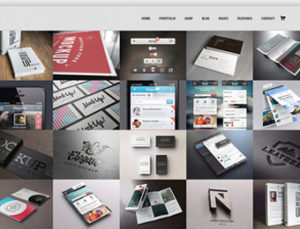Profession Portfolios plus Extracurricular Routines in Your Continue

A resume is a fusion of an applicant’s accomplishments along with other notable aspects that have set them apart. One effective approach to present the curriculum vitae during an interview is for the candidate to augment the job summary with a portfolio or a compilation of supplementary information about themselves.
Career portfolios fortify the resume by showcasing the candidate in the most advantageous and competitive light. Portfolios encompass information that falls beyond the conventional resume’s scope when it comes to presenting content.
Moreover, a career portfolio serves as an extension of the resume, filling in the gaps in highlighting expansive and profound transferable skills as well as core strengths.
There are two types of career portfolios:
- Traditional portfolios – A traditional portfolio includes essential information and transferable skills about the applicant. Conventional portfolios might encompass an applicant’s work compendium, video recordings, and other offline media employed for promoting professional development.
- Online or digital portfolios – Social media platforms such as LinkedIn and BrightFuse are progressively supplanting cumbersome portfolios while maintaining the same impact in conveying an applicant’s prowess. Online portfolios are also versatile. Digital artists can leverage image-sharing platforms like Reddit or Deviant Art to present their creative masterpieces to hiring managers.
Extracurricular Activities in the Career Portfolio
Have you been able to enact significant change within your community through social service or charitable endeavors? Are you actively involved in your community’s undertakings? Do you volunteer to participate in community events such as fire prevention seminars or discussions on teenage pregnancy?
Hiring managers are keen on applicants capable of instigating change or making an impact through community-driven activities. Hence, including your contributions to the community or any formal institutions such as schools and parish churches can greatly enhance your job application.
Submitting the Portfolio with Professionalism
Many candidates make the mistake of abruptly presenting their career portfolio without being prompted by hiring managers or interviewers. Candidates should recognize that a portfolio will only be relevant if the potential employer explicitly requests them to provide their binders or documents.
Of course, the applicant can also initiate the conversation that revolves around their career portfolio. Phrases like “In fact, I have brought along my portfolio, and if we have time, we can delve into it further†or “Would you like to review my portfolio? I have all the materials you are looking for right here.â€
Shift the momentum of the interview by proactively shedding light on yourself, and the portfolio can serve as a compelling showcase to underscore your skills and other notable contributions you’ve made.
A lot more Articles



